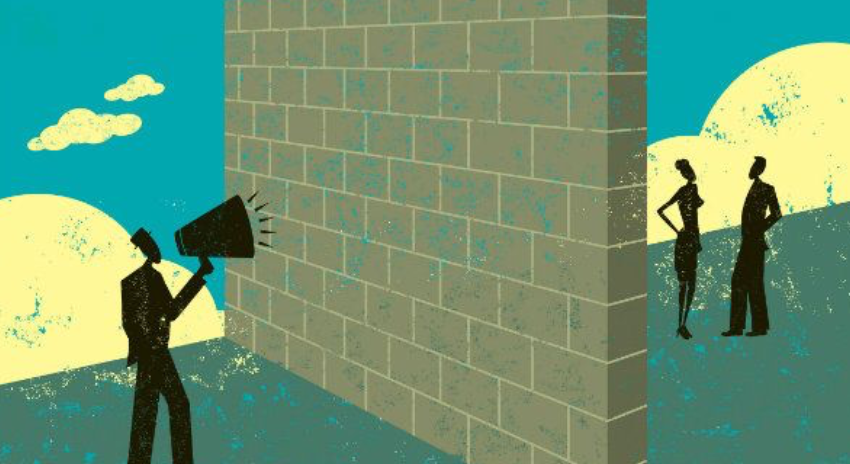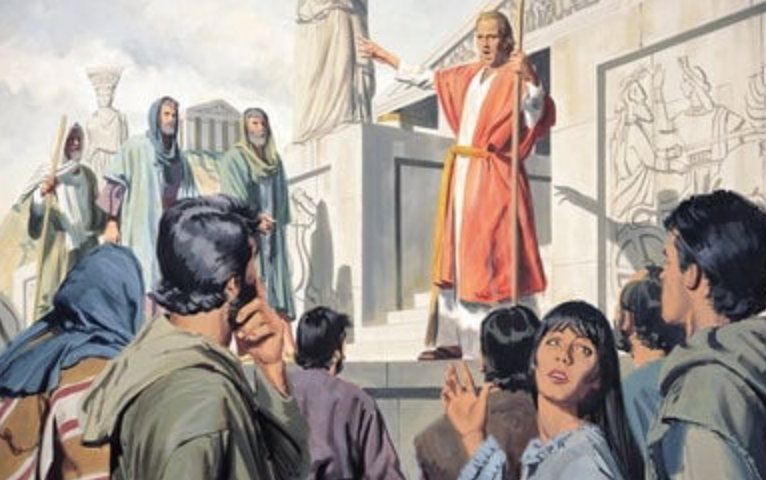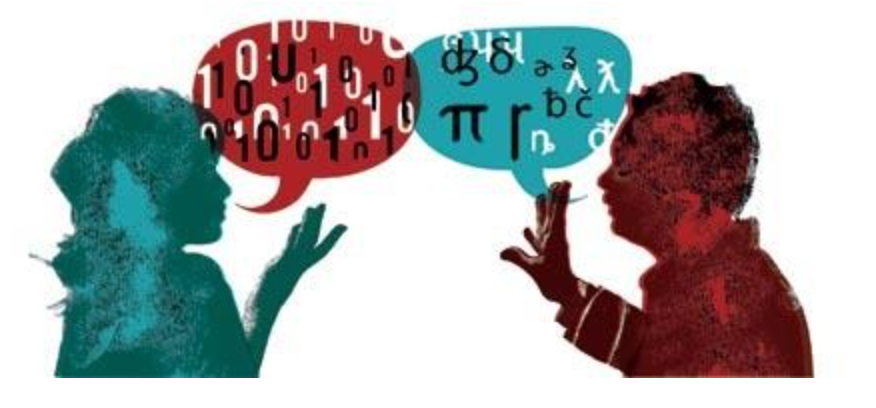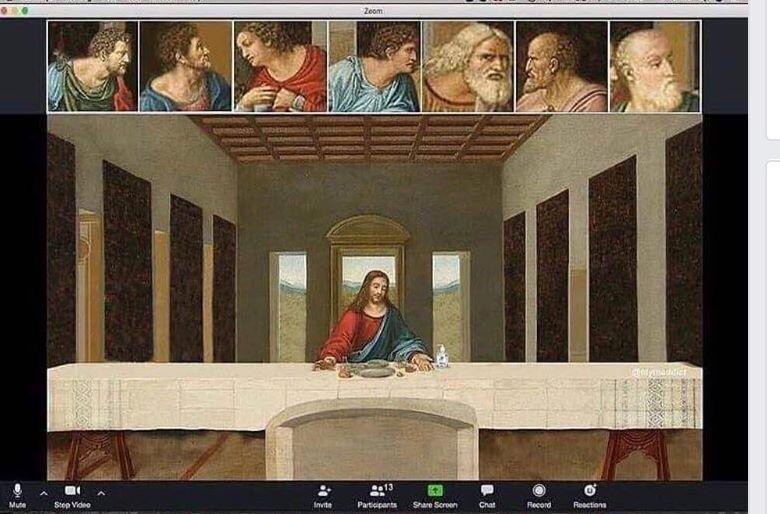
Have we ever have found language to be a barrier before? As a family we once went to Dunkirk for the day. Arriving at a cafe, I took a deep breath, asking the waitress: ‘we would like four knickerbocker glories please’, in my best French. We were delighted when four crepes arrived…very tasty but not what we ordered.
At another time, I led the family towards a ticket booth in Berlin and tried using my CSE (yes that long ago) German to order some train tickets. Our children, looked heavenward, and took over, much to the relief of the person selling the tickets….and myself.
If beauty is in the eye of the beholder, then so is the language of love seen in that connection of the gaze, in that link across humanity.
What of our use of language in churches?
Rachel Held-Evans, one of my favourite authors sadly died just over a year ago this month. She highlighted that Jesus spoke of the kingdom of God over 100 times in the Gospels but only twice mentions the word ‘church’. However, with the Book of Acts, it is the reverse. Many mentions to the church, but few if any to the kingdom of God. Christians seemed to get quite fixated about ‘church’. I wonder how quickly we move onto rotas, preaching plans and whether there was a sufficient weekly collection?
If we were willing to journey alongside others, hear their story, understand where they have come from, are going, speak their language, maybe we’ll find the Christ in all of us.
What is Paul trying to say?
In the Book of Acts, (Acts 17:22-31) we read of the travels of Paul.
Paul wanted to offer all an opportunity to encounter and engage with what he felt, knew, was the love of God. Sadly, often this group of people were not appreciative of his rather odd message: of inclusion.
Paul had just been to Berea, just up the coast – albeit currently closed to tourists – and was told – both verbally and physically – to leave. Timothy and Silus, one of the co-authors of the soon to be written letters to the Thessalonians, were to try to hold the fort for a while, and then catch up with Paul in Athens.
We have to note here that Paul isn’t writing the Book of Acts, but Luke, who may or may not have been there with him – so scholars would say. So we are reading what Luke wrote, many many years later, and wants people to hear.
The Language of Paul
[bg_collapse view=”button-green” color=”#4a4949″ expand_text=”Show More” collapse_text=”Show Less” ]
So Paul starts to wander around Athens, then with roughly the same size population of Todmorden [1]. Athens was once the pinnacle of academic thought, but had slid down the university leave table a tadge. What remained were the remnants of the local debating chamber, outside and high up on the hill. Here you’d find the thinkers of the day. Those who felt that a bit of pain was all part of the deal, “no pain no gain” type of people; but also the ‘just do it’ brigade, the Nike people, carefree, foot loose.

Here, Paul would chat with those locals. He realised from experience that if he started to just give the standard religious stuff, people would be turned off. They’d start back on the current topic of conversation. You know: what are you doing now, post-lockdown? after all this time is there any DIY remaining to be done in the house? or weeding in the garden?
So what to do? He had been trained for years to give the usual spiel. You know the stuff “Jesus died for you, you need to be forgiven because of his death, and have eternal life”. But they’ve heard that all before.

Language of engagement
So he looks around and finds what is contextually valid for them. “Hey I have seen that “To an unknown God” plaque”. He knew that in history someone had released some sheep into the city. Wherever they laid their hat, sorry, sat down, they’d build a temple to the nearby god. On this one occasion, a wayward sheep (isn’t there always one) decided to just sit down. With no nearby Temple, they had to do something, so the altar was build to this unknown god. They’d even had some Greek poets write a sonnet about it. The locals turn and think, perhaps this guy could be ok?
We have these ‘altars to an unknown God’ all over the place today don’t we. Places where we make a great fuss over but not exactly sure why. It could be a place where we spend a lot of money, but to buy goods that we really really really need ….want.
We buy things which although made by human hands, remove life from us and others.
But we speak of ‘living in abundant life’ – it relates to us and others. We could be looking to highlight areas of our life which need to change.
[/bg_collapse]
So what else can we talk about which engages with others?
Our Language
I wonder whether we try too hard to put the message which burns within us. Or perhaps struggle to say the words which we can’t yet grasp ourselves. People may not want academic gloss but for us to be us – be truthful, authentic. Note please that it is ok to have doubt, to say “I don’t know” or “I’m not sure”. It makes us human rather than look like a book.
‘How are you?’ is always a good starter question in conversations. But how many times have you said “Oh I’m fine”… When in reality your body or mind or both are aching and crying out for help and support. I wonder what reactions we might receive if we said “actually it’s all a bit rubbish at the moment”. How might they respond then? Have you opened the door for them, perhaps, to be vulnerable? But one question isn’t going to cut it, to make such a change.
Where is the ground that we are comfortable in?
I wonder if it is church, the building? We may have seen the letter being distributed asking for ministers to be allowed to return to their churches to pray. I wonder how that may be perceived by those outside of the church? Furthermore, I wonder how those people looking at the church may feel with that desire to return to a building that they have not set foot in for some time perhaps?
What might happen if the people of the church, beyond this lockdown, were to eventually come out to them, vulnerable, not seeking to know all of the answers, but to walk with them on our journey? We walk together, not ourselves, huddled together.

We currently have taken the benefit and utilised the skill of others to go live via Zoom. Now there is another language: how many of us would have said “I’ll zoom you soon” a few months ago – I’d didn’t even know of Zoom.
Technological Language for today
But society has been using such language of Facebook Live, Insta TV, Microsoft Teams, Zoom and WhatsApp for years. Yes we have used Facebook to see the latest cat pictures, Insta to show the latest meal we have had, and WhatsApp to arrange a meetup. It might not be our cup of tea but it might well be other people’s.
If we were to encounter these opportunities, might we then engage with them, find that link with others and chat. For it is in that discussion that we find areas of commonality. That we can share and dialogue, that we can grow in our mutual understanding. It is not about bringing them, arguing them to our side of the debate, but walking with them and sharing what we know, hearing what they know.
Paul doesn’t make a great argument here at the end of the text. His mentioning of the resurrection, is possibly misunderstood as a name of a Greek goddess, causing confusion amongst those nearby. That actually should give us confidence: for Dionysius, a fellow philosopher from the area, and a woman called Damaris, also are named as believers – and we don’t get many women named. No church was founded in Athens for many decades, but this message is left for us to ponder.
Is it the church, the building, which is important or the belief and the followers of Christ?
Conclusion
In the current context, let’s not return to the barriers which we may have had in the past, but encounter and engage with others possibly in territories which are uncommon to us.
Let us not retire back to the sanctuary of our churches, where we dictate what is said, sung, done. Yes it can be a place of welcome, a place of spiritual beauty, but God didn’t make the church building but the world – let’s allow our lives to flow alongside others.
Our language is one where we can encounter the other, engage with the person. Michelle Obama said in her book ‘Becoming’ “Look everyone in the eye, and take in their story”.
If beauty is in the eye of the beholder, then so is the language of love seen in that connection of the gaze, in that link across humanity.
So let’s take this opportunity to reflect on what could be if we were to change. If we were willing to journey alongside others, hear their story, understand where they have come from, are going, speak their language, and, in that, find the Christ in all of us.
[1] Walker, Peter., In the Steps of Saint Paul, (Oxford : Lion, 2008, 2011), p. 108.
[2] Nick Fawcell, No Ordinary Man, Book 1 , (Stowmarket: Kevin Mayhew, 1997), p.265.